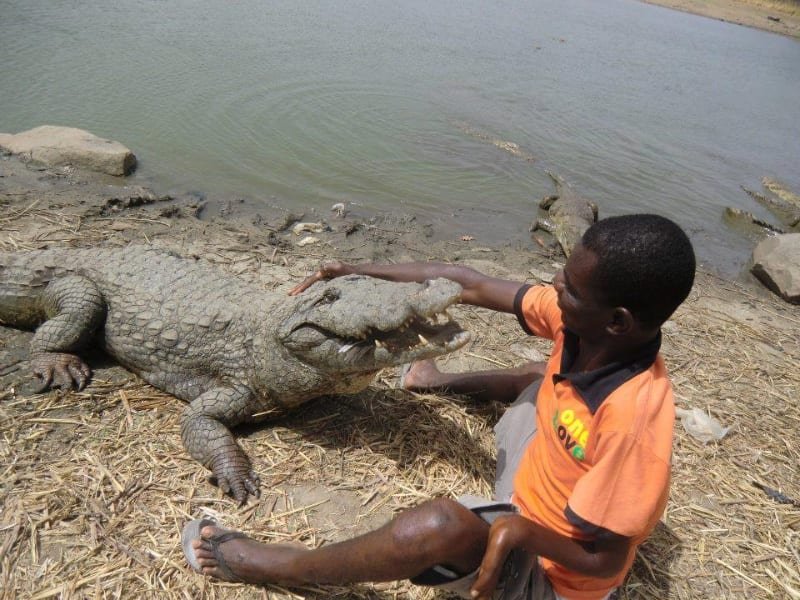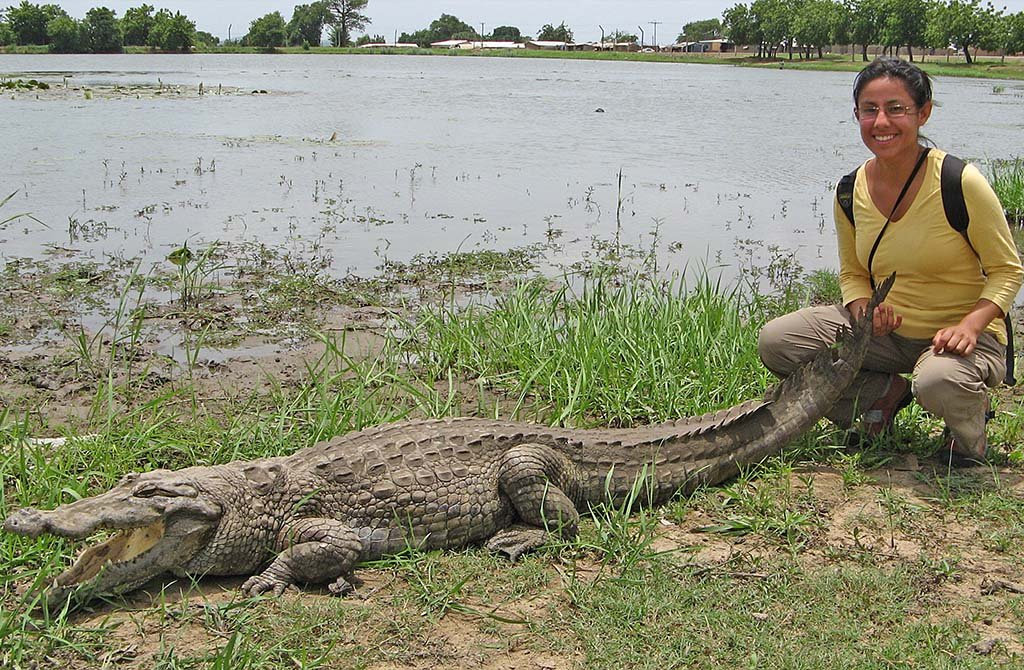Paga Crocodile Pond is a sacred pond in Paga in the Upper East Region of Ghana, which is inhabited by West African crocodiles. Due to the friendliness of the reptiles, it has become popular among tourists and the pond is now reliant on tourism to ensure the population of crocodiles remain fed and healthy. It is also known as Chief’s pond.
The pond is located in Paga in the Upper East Region of Ghana, and is 44 kilometres (27 miles) outside Bolgatanga, the regional capital. It is inhabited by wild West African crocodiles, with some up to 90 years old. The crocodiles are so tame that local children can swim in the pond alongside them without being harmed. Paga is known to be a trade center for centuries and closer to the Burkina Faso border. During the period of the slave traders in the mid-1800s, the Westerners used Paga as a gateway to the Gulf of Guinea which points from the north.

Though the Paga crocodiles are affable, there are instances where they mistake humans for animals. Nonetheless, such accidents did not result in casualties in history. Apart from the main crocodile pond that is located in the heartland of the Paga town, there are numerous others in the suburbs.
It is a customary offence to harm, kill or show any sign of disrespect to the crocodile of Paga. It is not uncommon to find children and or visitors sitting at the back of or holding the tale of a crocodile without any harm, after a sacrifice of fowl.
This is normal for the people of Paga but a mystery to visitors.
The majority of the dams within Paga house at least ten crocodiles, most of which might have migrated from the adjoining communities. The migration usually occurs in the night when the crocs sneak through the bushes into the closest water bodies. Frequently, the crocodiles move between ponds during the vegetation growth—from July to August— that provide them with cover to elude being seeing by humans.
Like the feral crocodiles, the mother crocodiles carry their newly-hatched offspring in their mouths from the sand banks to the water. The mother-crocodiles then provide security to the young ones until they can hunt for themselves.

The locally told origin of the pond was that a crocodile brought a dying man to the pond to drink, who after surviving, declared the pond to be sacred and that no harm should come to the crocodiles. This legend of the crocodiles is claimed to date back to about 600 years. The crocodiles are considered to be totems for the locals. Another story states that a man was trapped against the water’s edge by a lion, when he bargained with a crocodile that none of his children would harm his kind if he would kill the lion. It is believed that the souls of the people of Paga resides in these crocodiles. It is an offence to kill crocodiles in Paga, or eat crocodile meat.
The crocodiles at Paga are very friendly. Visitors can sit, touch and take photographs with the crocodiles. The crocodiles roam freely throughout the pond, and are brought to the shore when the guides whistle loudly. Tourists can then take photographs while holding the crocodile’s tails, after the guide has fed them a chicken. There are concerns that the pond is now too reliant on tourism, with caretaker Salifu Awewozem saying in 2009 that the elderly crocodiles require specialist care, and the only time additional food is provided to the reptiles is when tourists pay for the chickens when they pose for photographs. Tourists use Paga as an opportunity to see preserved slave camps. The also enjoy village tours and evening drumming and dancing by any local cultural group could be arranged for them.

Additional Source: Wikipedia




